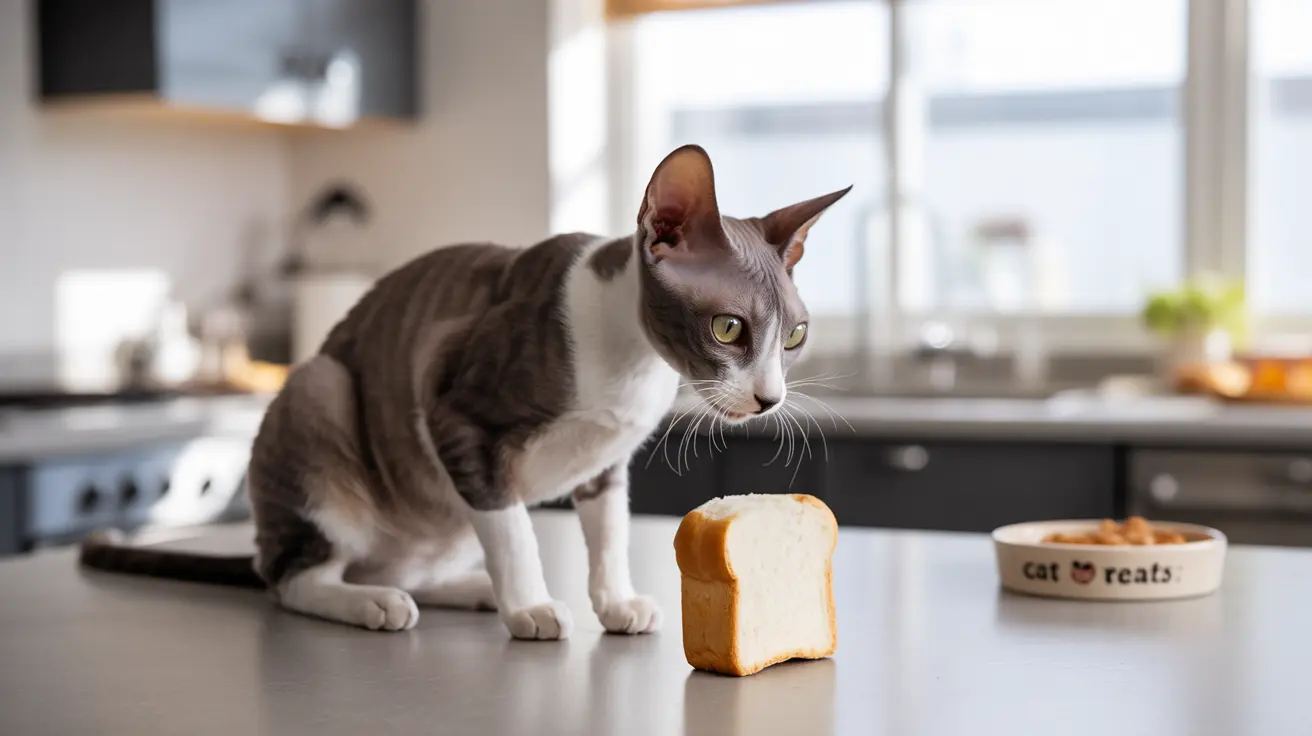As cat owners, we often wonder about sharing our favorite foods with our feline friends. One common question that arises is whether cats can eat bread. While cats might show interest in this everyday staple, understanding the safety and potential risks of feeding bread to cats is crucial for responsible pet ownership.
This comprehensive guide will explore everything you need to know about cats and bread consumption, including safety considerations, potential risks, and when to avoid this human food altogether.
Understanding Cats' Nutritional Needs vs. Bread
Cats are obligate carnivores, which means their bodies are designed to thrive on meat-based proteins. Unlike humans, cats have no biological requirement for carbohydrates, which make up the majority of bread's composition.
A typical slice of bread can contribute up to 20% of a cat's daily caloric needs without providing any of the essential nutrients they require, such as taurine, arginine, and animal-based proteins.
Safe Bread Consumption Guidelines for Cats
While plain, baked bread isn't toxic to cats, it should only be offered as an occasional treat under specific conditions:
- Only serve fully baked, plain bread varieties
- Limit portions to tiny pieces (smaller than a fingernail)
- Never exceed 10% of daily caloric intake
- Avoid feeding bread to cats with health conditions
- Monitor for any adverse reactions
Dangerous Bread Types and Ingredients
Some types of bread can be hazardous or even lethal to cats:
Raw Dough Dangers
Raw bread dough poses a severe threat to cats. The warm environment of a cat's stomach can cause the dough to expand, potentially leading to life-threatening bloat. Additionally, the fermentation process produces alcohol, which can cause alcohol poisoning.
Toxic Ingredients to Watch For
Many bread varieties contain ingredients that are toxic to cats:
- Garlic and onion (can cause anemia)
- Raisins (linked to kidney failure)
- Nuts (especially macadamia nuts)
- Chocolate chips
- Artificial sweeteners (particularly xylitol)
Health Implications of Bread Consumption
Regular bread consumption can lead to several health issues in cats:
- Weight gain and obesity
- Nutritional deficiencies
- Digestive problems
- Decreased appetite for proper cat food
- Blood sugar fluctuations
Using Bread for Medication Administration
While some cat owners use bread to hide medications, it's not always the most effective method. Many cats can detect medicine in bread and may refuse it. Veterinary-approved pill pockets or wet food often work better for medication administration.
Frequently Asked Questions
Can cats safely eat plain bread, and how much is okay to give them?
Yes, cats can safely eat small amounts of plain, baked bread occasionally. The portion should be no larger than a fingernail and should not exceed 10% of their daily caloric intake. However, bread should never be a regular part of their diet.
Why is raw bread dough dangerous for cats to consume?
Raw bread dough is extremely dangerous for cats because it can expand in their stomach, causing painful bloating and potential gastric rupture. Additionally, the fermentation process produces alcohol, which can lead to alcohol poisoning, seizures, and even death.
What types of bread should I avoid feeding my cat due to toxicity risks?
Avoid any bread containing toxic ingredients such as garlic, onions, raisins, chocolate, nuts, or artificial sweeteners (especially xylitol). Also, avoid flavored breads, as they may contain harmful additives or excessive salt.
Can bread cause any health problems or nutritional deficiencies in cats?
Yes, regular bread consumption can lead to obesity, nutritional deficiencies, and digestive issues. It may also cause cats to eat less of their nutritionally complete cat food, potentially leading to health problems over time.
Is bread a good way to give my cat medication, and are there better alternatives?
While bread can be used to hide medication, it's not the most reliable method as cats often detect and reject medicine in bread. Veterinary-approved pill pockets or wet food are generally more effective alternatives for medication administration.
Conclusion
While cats can eat plain bread in very small amounts, it offers no nutritional benefits and could potentially cause health issues if fed regularly or in large quantities. As responsible pet owners, it's best to stick to nutritionally complete cat food and veterinary-approved treats designed specifically for feline dietary needs.






